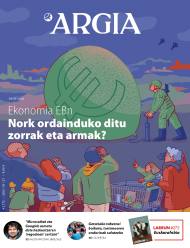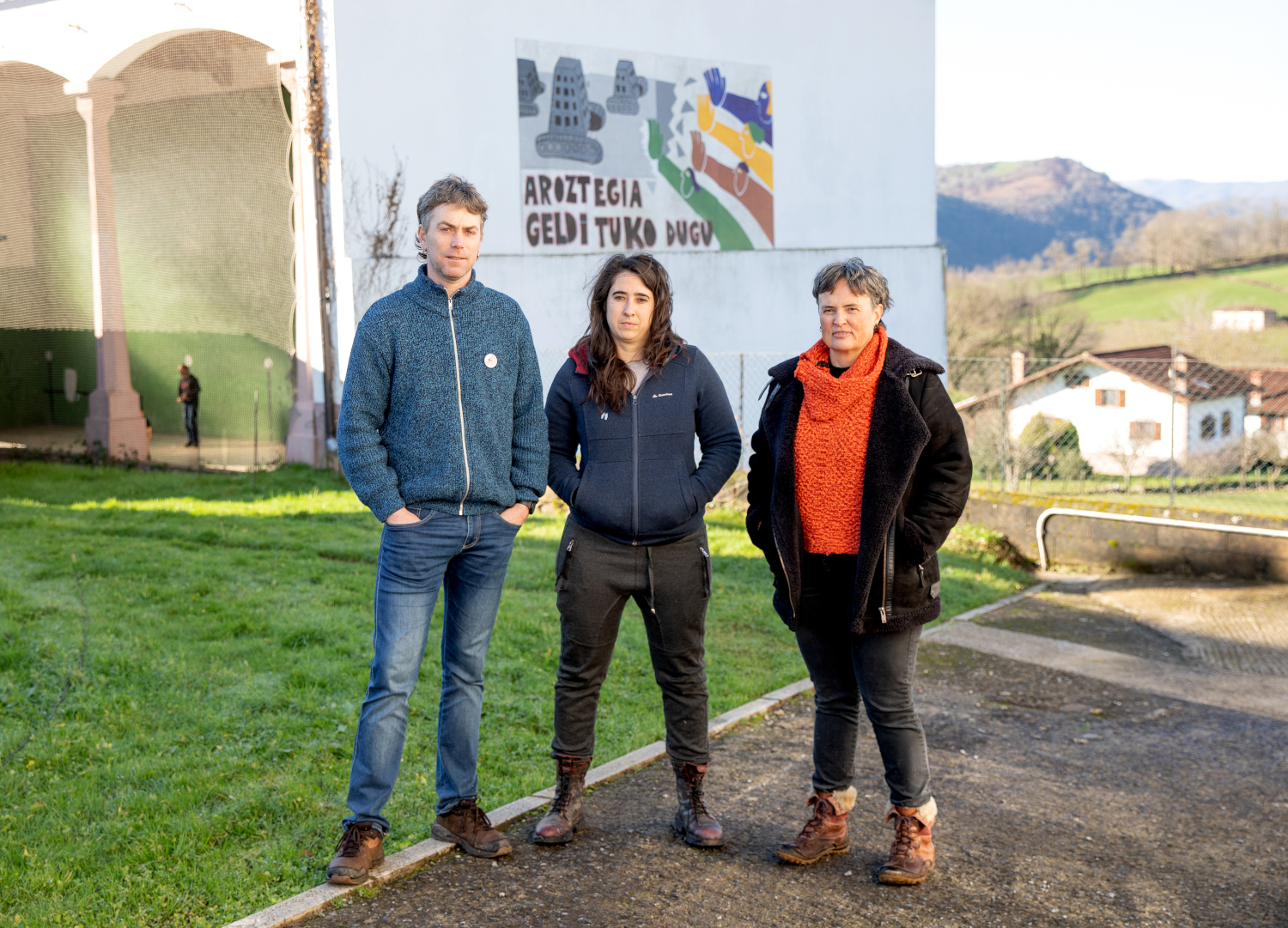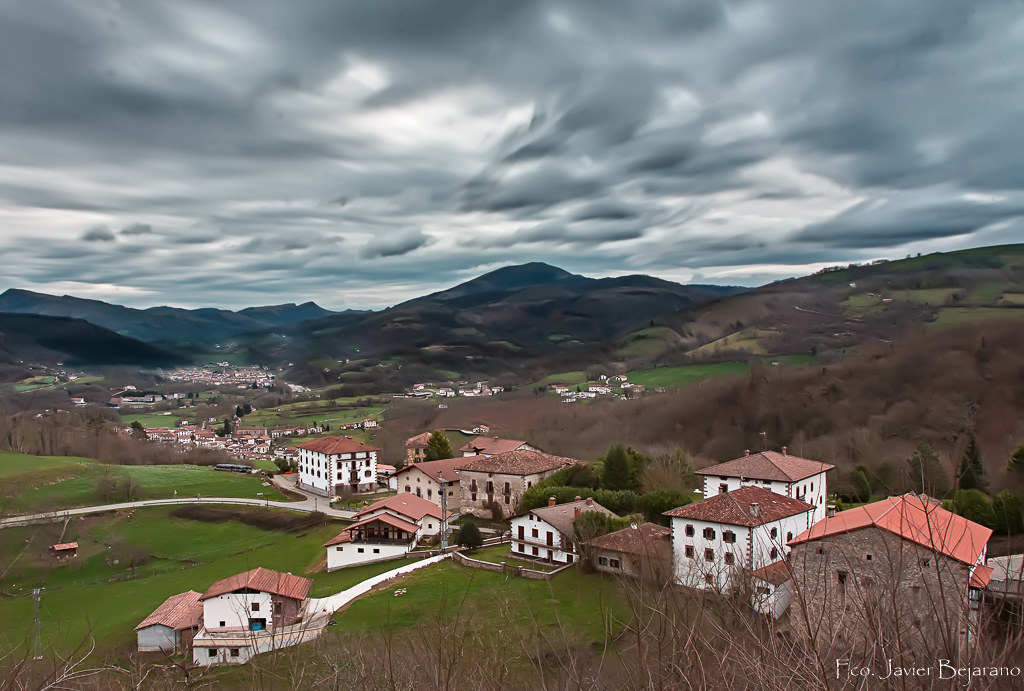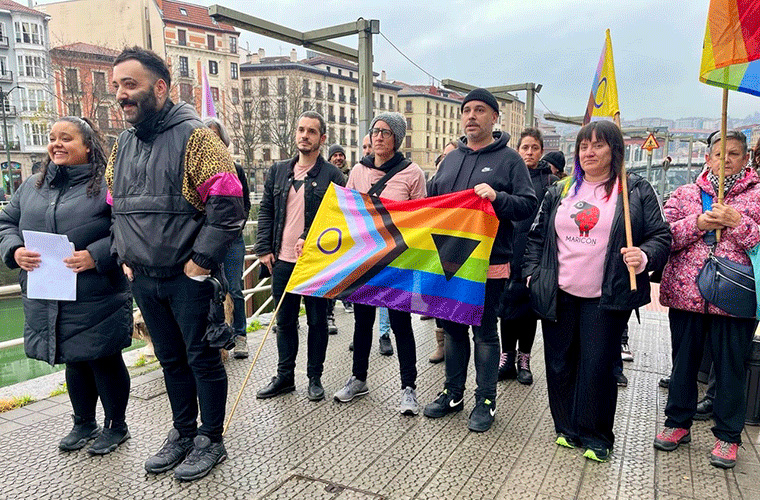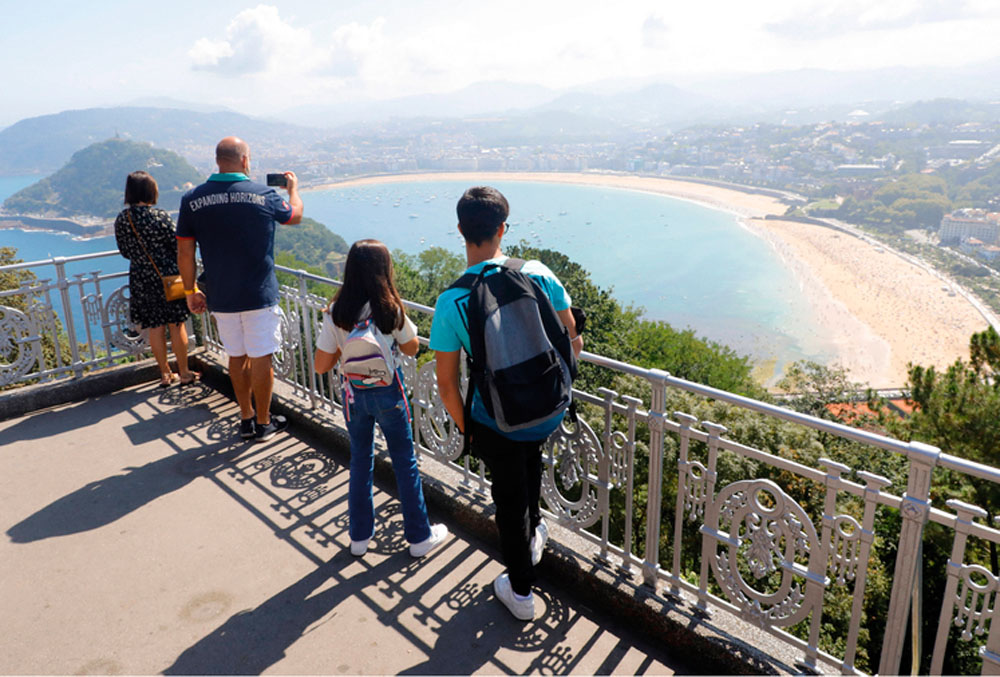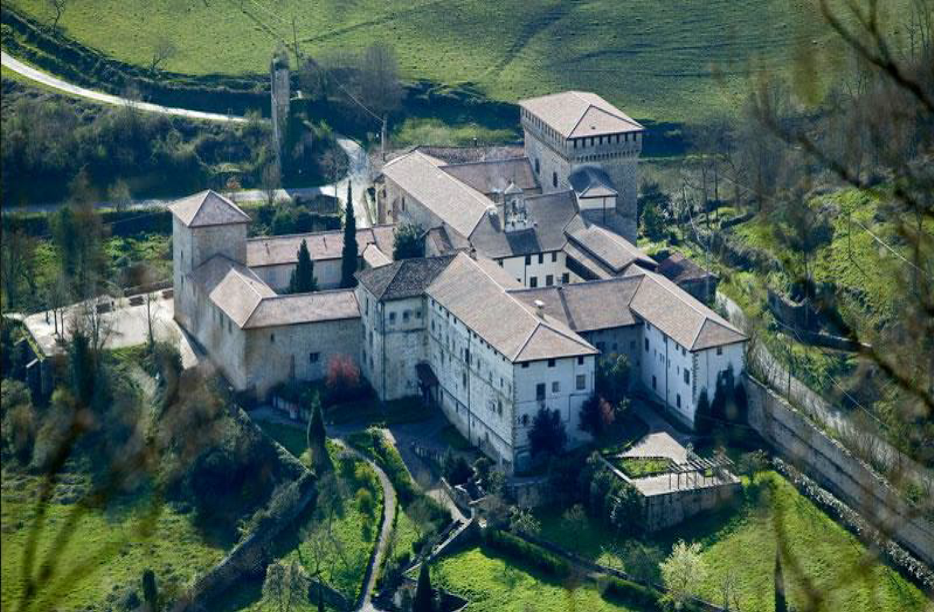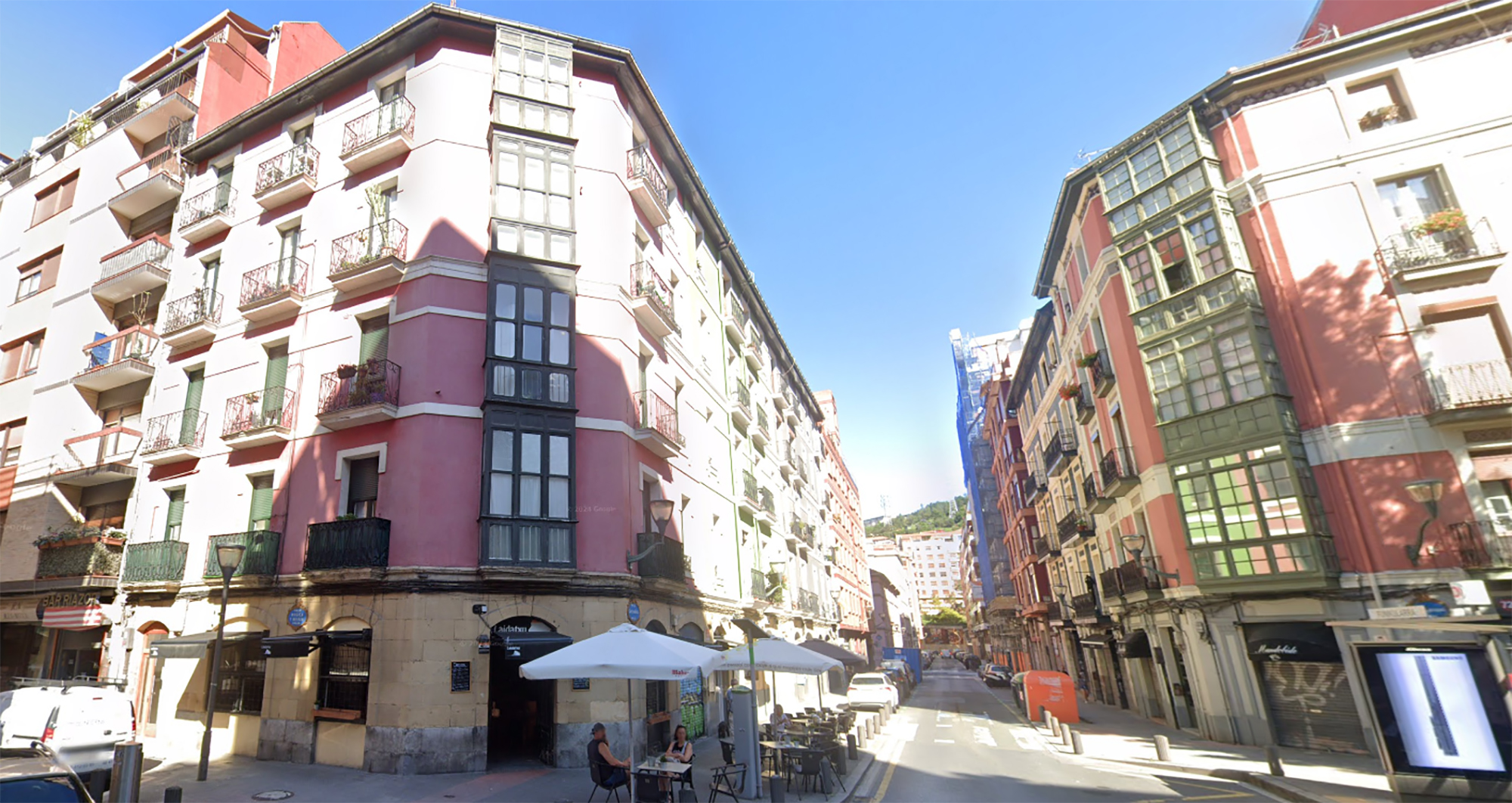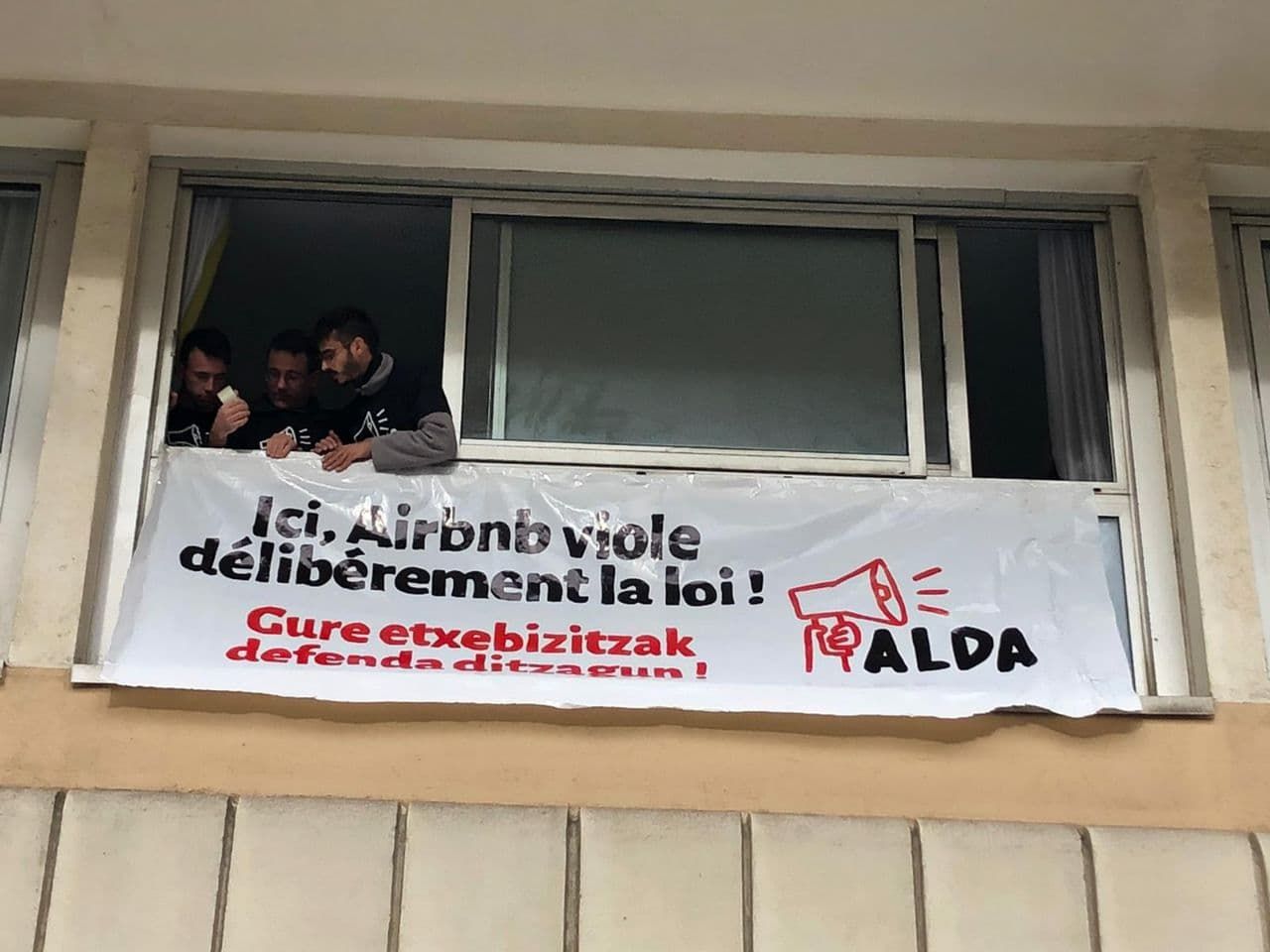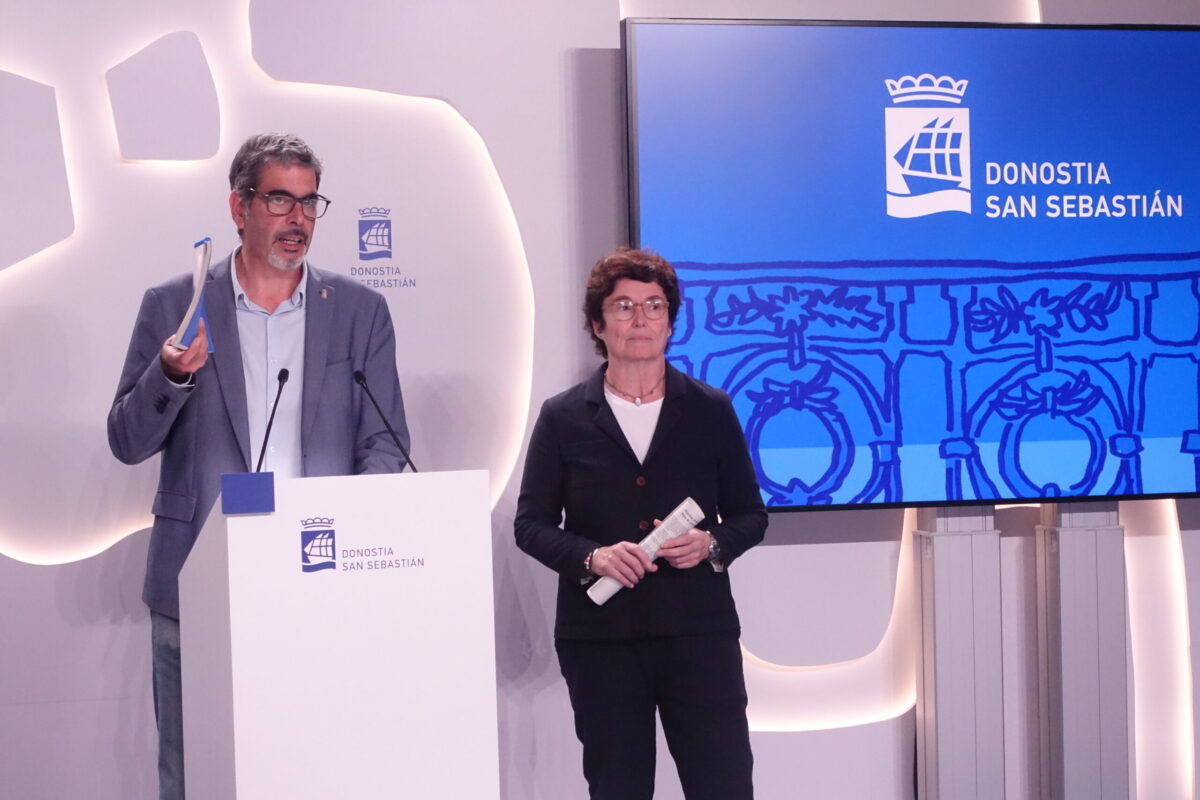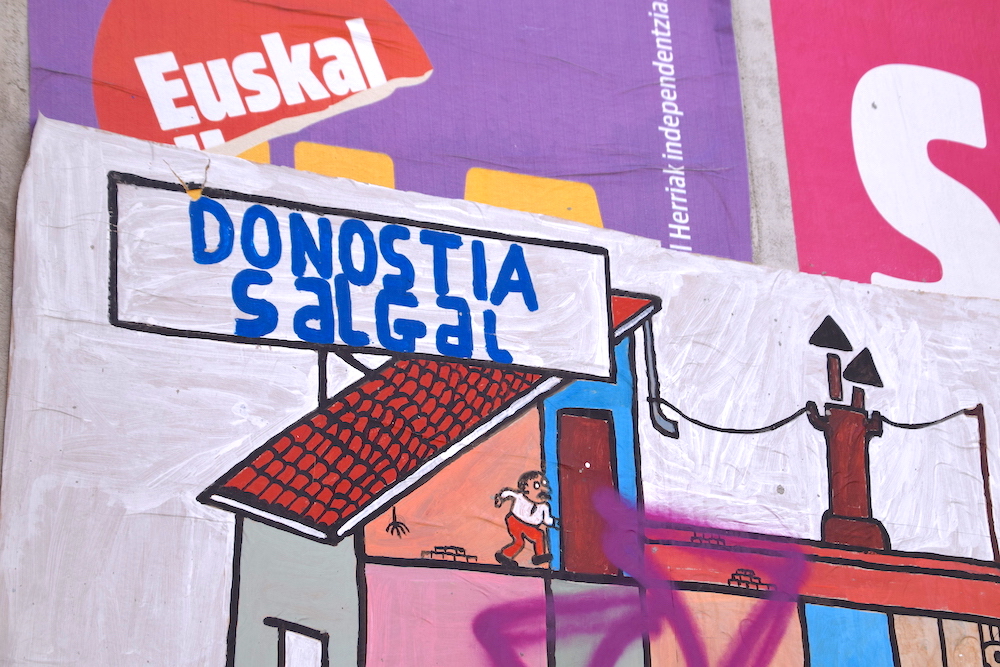October against Turistification was rounded off last Sunday with a multitudinous demonstration in favor of the tourist growth of the Bizilagunak platform, but the debate on turistification is still alive in the city. In particular, they have contacted the tourism of... [+]
Who will come to the stacha, the getaria or the tourists?
- Getaria is as small as it is alive, a coastal town in Gipuzkoa, but since December there have been some changes in the Old Part: the hotel owners have raised prices and the young people have boycotted Sos citizens. They have spent almost four months without spending a penny on bars to denounce the "excessive" rise in prices. We met with the young people to tell what is behind the boycott, while the hospitality association Getabat and the mayor of EH Bildu, Haritz Alberdi, did not want to meet us face to face and have answered us in writing on the subject.
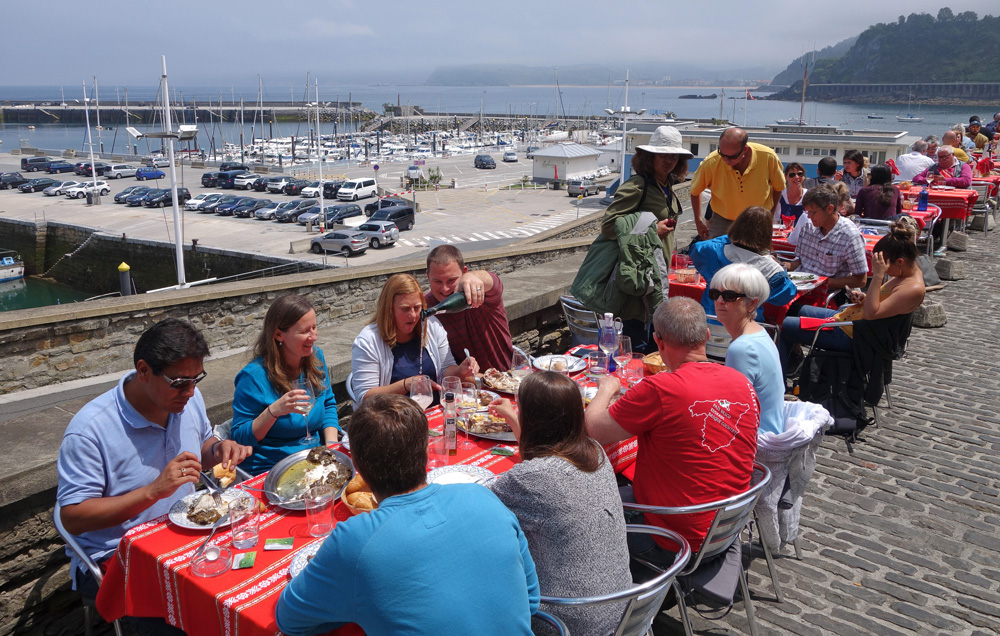
More than one may think that young people have mobilized only for alcohol, but it's actually what was missing to overflow the water. The wave has reached the Gran Vía and has impregnated the hotel owners, the town hall and the citizens; it has brought to the plaza the debates about the rise of tourism and has made it clear that in the last decade the country model has changed. Why? According to those of the Sos Hiritarrok group, the town is dedicated to tourism, leaving aside the locals. For the Getabat association, the responsibility for this change lies with the citizens and not with the foreigners: "Future generations have the challenge of advancing with fishing, with the dwellings and with the environment, the responsibility of keeping the girl is a citizen."
Mayor Haritz Alberdi has also called on "everyone" to grab the stacha if they want to remain a living and highly personable people. In fact, the City of Getaria launched in 2020 the campaign "Heldu statxa, the turn of the getaria", in order to help resurrect the local shops and hotel establishments that suffered the consequences of the pandemic. The getaria were pushed to local consumption, taking as a motto the rope, the mat, which firmly holds the pattern when the regattas begin: "Stand well and take steps in teamwork like rowing," the mayor summarized the campaign's goal. It is a good thing for young people to grant aid to the hospitality industry: "We've collaborated when we've been able, we've lived in Getaria, and we didn't expect winter prices to rise." The sea has moved a great deal since then and the young people have agreed to go in another direction: Under the motto "Grip the portfolios", they ask the hotel owners to replenish the prices; meanwhile, they will not go to the bars.
The young people went out to the street with alcohol and music in a car to protest at the bars
Young people between the ages of 20 and 30 have been organized in groups and since December various activities and talks have been organized. At the first meeting there were about 60 people, "more than ever", and they stress that young people have got into the subject of boycotts. "At these meetings and conferences we realized that this country model is not for us, people told us about it, but so far we haven't realized it." They accept that alcohol has triggered the movement, but they have proposed to reflect on many of the malaise situations that were previously mentioned in the crews. Looking to the future, they have now responded to the "need to do something" so that they can live in Getaria.
Boycott Bars
The participants of Sos herritarrakari have been concerned about: "If prices rise in that proportion, what will happen in a few years' time? ". They understand the increase, because they are aware that the expenses of the whole of society have also increased, but they denounce that the rise has been excessive and that it has been done at least when there are tourists in the village. "If they had climbed 10 cents in Easter, surely they wouldn't have complained to us. But it hasn't, they've done it at an inadequate time, and it's not 10 cents, it's 30 or 50." In general, beverages have risen by 15% or 20%, among other things, beer cane costs 2.5 euros, clear 1.5 euros, combined 7 and the large bottle of water 3.
In view of this, the Sos Herritarrok group met immediately and a walk was then held by the people. In December they took to the streets with alcohol and music in a car to claim to the bars that they were against the price hike. This was what the txikiteros of Durango and Oñati did in their day, they took the Marmitroid wine as a protest and drank it in the street until they managed to restore the price of the wine. Due to the impossibility of going to the bars, the members of Sos herritarrak have organized a series of games, round tables, pintxopots and meals in other areas of Getaria, among which they highlight that they have brought the Jack to life.

According to the hotel owners of the Getabat association, the boycott has caused an "unpleasant" situation: "Everyone is free to make their own demands, but in some cases we have been surprised by the way they make their demands." As for the price hike, they argue that they had not touched prices for four years and remember that prices for raw materials and electricity have risen. They stress that with the last "update" the Getaria have remained at prices similar to those of many towns in the area.
Pintxos, txakoli and gastrotecs
The people of Sos complain that all the bars are the same, that is, that they sell pintxos and txakoli, some of them gastrote-style, and that the citizens do not have the possibility to make a simple meal. "The model of the Old Part of San Sebastian, which we thought was not going to come here, has arrived." The hotel owners have been asked about the organizational actions aimed at the citizens, "as before". They criticize that it has become a people dedicated to the rich, and that having a trade in the Gran Vía is a "source of enormous income" thanks to tourism: "If it wasn't for the pandemic, the wind dreamed of those businesses."
Sos Hiritarrok criticizes that Getaria is dedicated to tourism and that the locals feel too much
The 2019 study of the Basque Government’s Enfokatur Tourism Observatory concluded that: Each tourist who came to the Gipuzkoan coast spent an average of 147 euros a day on gastronomy and wine (including the txakoli known in Getaria), in fact, 87.5% of the tourists who come to the CAPV carry out activities related to gastronomy. All the tourist guides of Getaria include the same offer: grilled fish, shellfish, txakoli and visits about Elcano and Balenciaga in sites surrounded by sea and mountain.
It should not be forgotten that this is a population of 2,839 inhabitants, according to data from Eustat in 2021, and that it concentrates the majority of the population in the drawer, where all shops and hospitality establishments are located. The Sos Hiritarrok group describes the summer situation: "The Getariars feel that we are left in the village, in the Great Way there are a lot of people but you don't know anybody, they're all full of cars." It is clear that COVID-19 has hit tourism a lot, but gradually the sector is re-emerging. The Tourist Office of Getaria recorded in 2021 a total of 22,340 visitors, to which others would have to be added to obtain a complete and real photograph of the tourists.

An identity mark: Fishing or tourism?
Nevertheless, the Getabat association assures that it has always been "close to citizenship" and present in local initiatives. They explain that they contribute to the Getaria: "We also have a direct relationship with the primary sector, with the fishermen of the village, with the Txakoliners, with the baserritars, with the janitors… We try to offer local products to those who come to our homes." In Getabat's words, tourists are "satisfied" because there are many citizens who earn by selling their products to them. They also say they are in charge of transmitting Getaria's identity, and they are "concerned" about whether the young people are going to interrupt that transmission: "Many young people don't want to work in the trades that support our identity."
As is well known, two of these pillars are fishing and husbandry, both professions of great sacrifice and declining. The Basque Government and the Getaria City Hall have organised a conference on, for example, the recovery of fisheries. "You're late! They have let die," Sos Herritarrak's members accuse the institutions. "You are using repairing networks to attract tourism, but repairing networks are no longer there, because you've driven the opening of bars and the building of money factories, and you've let the farmhouse and the fishing die."
The Getabat Hospitality Association is concerned about whether the transmission of local identity will be interrupted by young generations
Economic benefits of tourism
In this decade tourism in Euskal Herria has grown especially, and in Getaria this economic activity has gained weight. Mayor Alberdi has pointed out that tourism is the economic support of many families and people in the town, which generates direct and indirect jobs. He has therefore stressed that the subject of tourism is "complex" and "with many vertices". The Getabat Association also ensures that the hotel industry offers a large number of jobs: "We would be happy for young people to work in our homes, but unfortunately they have other priorities." Asking young people if citizens get money from tourism, they answer: "A few. These are temporary jobs for summer or Easter, but not for the whole year. They're stumbling jobs, especially for young people."
Is tourism, therefore, beneficial to the local economy or not? A more clarifying answer is the Donostiarras platform for the Bizilagun tourist uprooting: "When we are told the benefits of tourist activity, we are presented as an economic engine and a generator of employment. However, if one observes carefully, one side highlights the low quality and fragility of this employment and economic activity. On the other hand, it is clear that tourist activity requires enormous public investment and absolute conditionalisation of public policies. It generates jobs, a few give great profits, but the basis of all this is in public budgets. Cities adapt to those who earn from tourism, create cultural attractions, build large infrastructures… and pay with everyone’s taxes.”

Dozens of heads
The rise in the prices of bars has provoked opposing views in Getaria, facing each other, and it seems that the sea does not have a calming forecast. The members of Sos Herritarrak have met to revolutionize the village model and have been silent, both by the city council and by Getabat; it should be noted that in addition to the youth, they have come to some initiatives older citizens, a sign that the issue has aroused interest. In addition, they have reached an agreement with a bar and have lowered prices, so they have rejected the boycott.
However, the hotel owners of Getabat have denounced the remoteness of the youth saying that being a small town you have to solve the problems talking directly, they are not at ease with the movement. The Mayor has not so far seen the need to intervene in the controversy, but he understands that the issue must be addressed "from many vertices". What does the city council have to do so that Getaria does not eat tourism? Alberdi says they're doing it. "In our smallness, we're pushing different projects out of two ideas. One, that every single thing we do influences the well-being of the Getaria, and another, that the conclusions drawn from the reflection on tourism in 2020 be established." Young people are critical of the City Hall, because they believe that they enter into contradictions and inertia, and if they continue to do so they see the risk that they will "unintentionally" become a kind of tourist village on the coast of the Northern Basque Country.
As they say in Getaria, someone will have to grab the stacha to continue to ship in the Braves Seas. In fact, the use of the harpoon tied to the harpoon was left behind, a source of wealth for the getaria during the period of whale capture.
2020. urteko udaberrian lorategigintzak eta ortugintzak hartutako balioa gogoan, aisialdi aktibitate eta ingurune naturalarekin lotura gisa. Terraza eta etxeko loreontzietan hasitako ekintzak hiriko ortuen nekazaritzan jarraitu du, behin itxialdia bareturik. Historian zehar... [+]
Tasa edo zerga turistikoaren eztabaida urtetan luzatzen ari da, erakunde publikoetan ordezkaritza duten indar politikoen artean zabala den arren ezarri beharraren gaineko adostasuna. Eztabaidetako bat da zerga hori zein erakundek kobratuko duen: zenbait udalek (tartean... [+]
Ilbeltzeko igande goiz batez jo dugu Baztanera. Eguzkiak oraindik ez du Lekarozko plaza argitu; bertan elkartu gara Garbiñe Elizegi Narbarte, Itziar Torres Letona eta Ernesto Prat Urzainkirekin. Itzaletan hotz egiten du eta umorez goxatu dugu lehen agurra, hogei urtean... [+]
EHGAMek Axel hotelaren irregulartasunei jarritako helegitearen inguruko isiltasun administratiboaren ondoren, hotelaren itxiera eskatzen du eta hainbat eragileekin batera prentsaurrekoa eman dute.
Frantziako Estatuko diputatuak eta senatariak ados jarri dira. Orain arte, alokairu turistiko bat alokatzen zutenek etekinen %50 zergapetik kentzeko aukera zuten, urte osoko alokatzaileek, berriz, %30. Lege proposamenak biak hein berdinera ekarriko ditu, hots, %30era.
A long weekend. We've turned around the environment and we've taken advantage of it to make the picoteo. Tourists making selfies. Routes for tourists, rentals, shops, hotels, parkings, menu dishes, sign signs in all languages of the world. Tourists turn the usual places into... [+]









